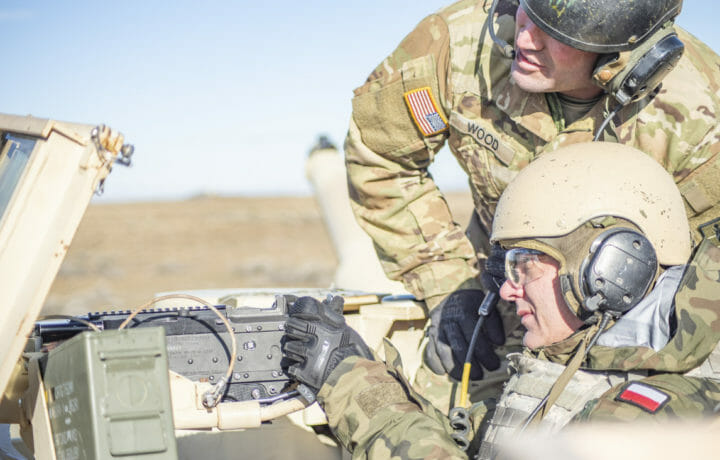There has been a lot of discussion on the fact that the U.S. Military is not meeting its recruiting goals. But unfortunately, the challenges the military is facing in meeting the number of members needed to meet the future mission of the military does not end with recruitment. The Army National Guard is also facing the challenge of keeping members who have signed up to serve to commit and are choosing not to stay when their enlistment is complete, impacting recruiting and retention goals. Currently, the active duty Army component is currently not seeing this same challenge yet. But the challenge the National Guard is facing could be a precursor to bigger problems within the military at large when related to retention.
The Army National Guard is scratching their heads trying to figure out why members no longer want to serve. “So the question is, why are people now changing their mind?” Anson Smith, deputy chief of the Army National Guard’s Strength Maintenance Division, told reporters. “Well, we’re still trying to figure it out.”
According to Nathalie Grogan, a research associate for the Military, Veterans and Society Program at Center for New American Security, a Washington D.C. think tank, “A lot of guardsmen probably stayed longer than they would have. The deployments were for mostly a good reason, but that put a lot of stress on the [Guard] and their families, and family is the top reason people leave.
Is Afghanistan the problem or Is it Something Else?
With the war in Afghanistan finally over, members are choosing to leave the Guard behind. But that is just one of the factors affecting this mass exodus. The National Guard has changed a lot over the last twenty years. Along with the stress the Guard faced supporting Operation Enduring Freedom and Operation Iraqi Freedom, there have been more and more requirements of being called up to help with natural disasters, COVID-19 response, and more. What was once a one weekend-a-month, two weeks-a-year commitment has changed to a much bigger request of those who are serving.
And this means the sacrifice families are having to make to support a service member in the National Guard is more than what they might have expected. The number one reason members are currently giving for leaving is family. And the added strain on families and also to employers who have Guard members within their companies has many members choosing to leave before retirement or not serving more than their original commitment.
Impact of COVID-19 and Healthcare Gaps
Another challenge the National Guard is facing is the number of members who have yet to receive a COVID-19 vaccination. Currently, there are about 14,000 soldiers expecting to be discharged within the next two years over refusing the COVID-19 vaccination. This has Army leaders even more worried about meeting troop levels that are already low and can’t afford another loss. Officials are still waiting for official guidance that has been vague.
“We’re waiting for a decision from [Army Secretary Christine Wormuth] in terms of COVID losses,” Anson Smith, deputy chief of the Army National Guard Strength Maintenance Division said. “But at some point, those individuals who have not applied for an extension for either medical or religious reasons, then those individuals will refuse to take the COVID [vaccine], will have to be discharged.”
The lack of guidance has caused challenges as commanders are currently not allowed to have unvaccinated soldiers participate in training, but they are still on the books.
One other challenge that leaders are considering changing but not getting a lot of traction on Capitol Hill is that Guard members do not receive free health benefits like their active duty counterparts. Instead, Guard members can opt for Tricare Reserve Select. It is $46.70 per month, which is a big hit to junior grade members’ paychecks. It is estimated that 60,000 national guard troops do not have health care and extending this benefit could help with retention and recruitment.
The Army National Guard is feeling the pain of not meeting recruiting levels and losing members who are currently serving at a higher rate than expected. Meaning there will be fewer people to meet the demands of the Guard which could lead to even greater recruitment and retention problems in the future. And while there is a lot of talk of why there needs to be action showing members that they should join and stay in the National Guard.




